
The New Anarchy: Truth, Nature, Beauty and Withness
We have brought out a new 90-page pdf booklet in association with Nevermore Media, featuring a series of in-depth written conversations between Crow Qu’appelle and Paul Cudenec.The New Anarchy: Truth, Nature, Beauty and Withness can be downloaded for free here or see below, and below we present Crow’s preface.
by Crow Qu’appelle | Apr 30, 2023

“In the ruins of this civilization, we need to plant a mighty tree of authentic wisdom that will watch over the health, freedom and future of humankind for many centuries to come”.
So concludes the foreword to The Withway, the 2022 book by Paul Cudenec, the mystic and philosopher increasingly recognized (albeit not by himself) as the world’s greatest living anarchist thinker.
The author makes it clear that this book is not a manifesto, but rather a contribution to the process of political reorientation made necessary by the ideological collapse of the Left in the wake of the COVID psy op.
He states: “The Withway is an attempt to identify the deeper issues at stake and point at a different way of seeing the civilizational choices with which we are being collectively presented. It is not, as will be readily apparent, a political manifesto or a detailed programme for action. It is, rather, an exploration of ideas which is intended to act as a preliminary signpost, a rough sketch of the way in which many of us know intuitively we ought to be heading”.
To refer to the work as a preliminary signpost is rather modest, for the author sets out an exquisitely well-reasoned argument. If its ideas catch on (and I believe that it is only a matter of time before they do), then we may well look back on this book as a turning point in the trajectory of anarchist philosophy.
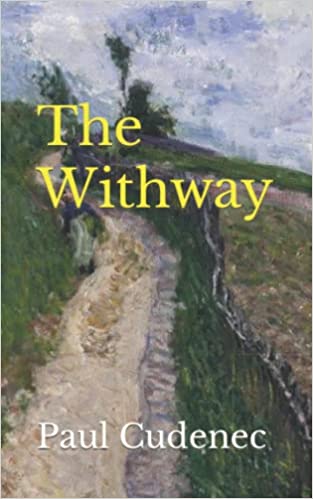
So far as I am concerned, this book is as important as Ronald Wright’s A Short History of Progress or David Graeber’s The Dawn of Everything.
Its subject matter is something that is near and dear to my heart, because the philosophy that Paul espouses is pretty much exactly what I also believe.
For this reason, I have a lot to say about The Withway, which is the best articulation of this philosophy which I know of. Therefore, in these interviews I explore some of the ideas which Paul so skilfully elucidates in this ground-breaking new book.
But before I do so, I’d like to set the stage by saying a bit about how my story relates to that of Paul, and to that of Nevermore Media.
The truth is that were it not for Paul Cudenec, Nevermore would not exist, and I do not know what I would be doing with my life.
When I encountered his writing, everything changed for me. I knew what I had encountered. This was the antidote to the poison of post-modern nihilist bullshit which had infected the Left.
I’d found the medicine that could cure the hideous ennui of postmodern alienation, and knew that I had to do something with it. I had been searching for ideas that could serve as a basis for unity for a new political movement, and I had found what I was looking for.
The world was withering for want of wisdom, and I had discovered a fountain of wisdom which seemed to stretch back to the dawn of time.
I had my work cut out for me.

It was in the dark days of lockdown when I resolved to scour the web for whatever authentically revolutionary voices remained amidst the rubble of the Left.
It was heartbreaking to see so many of my supposed comrades betraying the values of the anarchist counterculture.
At that point I felt, for the first time in my life, that punk was pretty much dead. The culture within which I have lived my entire adult life was no more.
It felt like a world had been destroyed.
I remembered the words from a punk song – “If it doesn’t matter now, then it never really did. And without this, we might as well be dead”.
Had everything that I had based my life on since I was fifteen been a lie? If people were so willing to throw their values out the window at mere rumours of a virus, was it not reasonable to assume that they never truly believed in them in the first place?
Maybe anarchism was just a fashion, one that I had taken way too seriously.
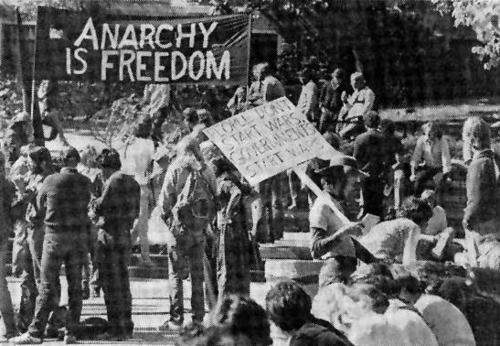
And if (almost) no one else believed in the principles of anarchism, could it be that it was because those principles were not sound? Did I need to grow up and accept that state violence, economic exploitation and coercive power were simply the way of the world?
Should I accept that activism is useless, that resistance is futile, and that it is folly to take up arms against the Great Machine, whose destiny has always been to swallow up the whole world?
It was in such bitter spirits that I began my search.
My spirit was soon to be lifted, for it was not long after beginning that I encountered a blog post with an eye-catching title – Anarchists Against Freedom. Was this what I thought it was?
I clicked on it, and was delighted to see that it was. I wasn’t alone! There was someone out there who felt exactly as I did about the absurd phenomenon of so-called anarchists fervently preaching compliance with the authoritarian dystopia being justified with the flimsy-ass excuse of a bad flu.

As soon as I read Anarchists Against Freedom, I was hooked on Paul’s writing. Here was an authentic anarchist voice who had distilled the essence of anarchist philosophy down to its purest possible form.
I dived into his body of work, and discovered to my delight that not only was he a green anarchist, the tradition to which I also belong, but he was also well-versed in metaphysics, mysticism, literature, Jungian psychology, Eastern philosophy, anthropology, archaeology, comparative mythology, and more.
Very soon, I knew that I had encountered the teachings of a true spiritual master.
I did not need to be converted to his way of thinking. It was very much what I already believed in my heart. But his philosophy was much more fleshed-out and complete than mine.
Mine was a philosophy of the heart, and Paul Cudenec had put it down into writing, placing it in its proper place in world history.
He had explained to my intellect what my soul already knew. It was glorious.

For years, I have described my anarchism as the political expression of something which is not itself political. By this, I meant that there was something more important to me than politics. Something existed on a higher plane in my mind, where it could not be corrupted by the vulgar machinations that are inherent to politics.
Here, outside of time, nestles an idea which Jung called the Oceanic Feeling, a sense of being part of some cosmic unity whose essence is alive, loving, and fundamentally good.
I suppose this would be the difference between my philosophy and that of many Leftists, who no longer seem committed to any overarching principles. Call it what you want – I believe in God.
This has set me apart from many of my Leftist comrades with whom I have organized for years, especially the type of middle-class, urban radicals who inhabit university campuses and NGOs.
That said, I soon found that my commitment to my spiritual practice created a natural affinity amongst myself and others who shared a deeply-felt sense that things are not as they should be in the modern world.
I was never alone in my belief that it falls to all people of conscience to do what they can to bring humanity back into balance with nature.
My path led me both to participation in indigenous ceremonies and indigenous political movements, and I started assimilating more of a holistic, spiritual perspective into my political imagination.

I was certainly not the only anarchist who began to absorb such influences. Since at least 2010, the anarchist movement in Canada has been deeply intertwined with indigenous movements, to the point where it is sometimes difficult to discern where one ends and the other begins. Thus, many anarchists began to absorb a spiritual perspective by osmosis.
It was necessary. Spirituality played such an important part in these movements that it was not possible to participate in them without respecting this dimension.
The fight at Standing Rock, for instance, was not a dispute over land use, but a battle between two visions of the world.
One cosmovision was obsessed with profit at all costs, and saw natural resources as existing to be exploited, whereas the other saw nature as sacred and capitalist greed as a manifestation of a type of mental illness.
One worldview was materialist. The other was spiritual. So anarchists found themselves spiritually united against materialism. And so both materialism and atheism began to fall out of fashion.
Even veganism, which during the 90s was a defining feature of green anarchism, faded into the background. It seemed hypocritical and Eurocentric to condemn another culture for hunting when the Dominant Culture was destroying whole ecosystems at a breakneck pace.

So, for those of us who have been on the front lines for the past ten years, there is nothing new about the idea that a new political tendency is emerging.
People have been speaking of The New Anarchism for the better part of a decade, but it remains mostly an oral tradition.
The New Anarchism is not based on the idea of a revolutionary proletariat seizing control of the means of production and setting up a bunch of committees.
The idea is rather of a transformation to a way of life rooted into the ecology and cultural contexts of many different locales. If the goal is decolonization, that also means re-indigenization – to create autonomous or semi-autonomous zones within which independent communities adapt themselves to the ecological realities of specific locales.
Some have called this bioregionalism, which flowed quite easily from the values of the anti-globalization movement.

The New Anarchism aims at nothing less than the transformation of the economic and political organization of free human societies based on principles of non-aggression, mutual aid, and voluntary association.
The goal is simple – to bring human societies into harmony with nature. But the vision of the New Anarchists does not end there.
There exists also a sense that such a transformation of human activity must also be accompanied by a transformation of our ways of relating to one another, and even to ourselves. There exists an understanding that modern civilized humans are part of the problem.
Many of us in First-World countries were reared on a diet of propaganda, privilege, porn, and post-modernism. We have been taught to consume rapaciously, and to express our individuality through consumerism.
We know that we are part of the problem. And so the revolutionary project for the New Anarchists is not to bring back the Terror of the guillotine, nor to storm the 21st century equivalent of the Winter Palace, but to learn another way of Being. It is a process of healing. It is a process of learning. It is a process of Becoming Human.
That is to say, the soul-searching has begun. We know what we must do. We must return to first principles. We must re-examine our beliefs and interpretations of reality. We must be willing to adjust, to adapt, to discard that which does not serve us.
And this soul-searching must extend to the deepest levels. We must leave no stone unturned, no taboo untouched. We must be secure that we have a solid World-Story through which we are able to understand our place within this mysterious web of life we are all part of. Without this, we are adrift, plastic bags tossed this way and that by the whims of the winds.
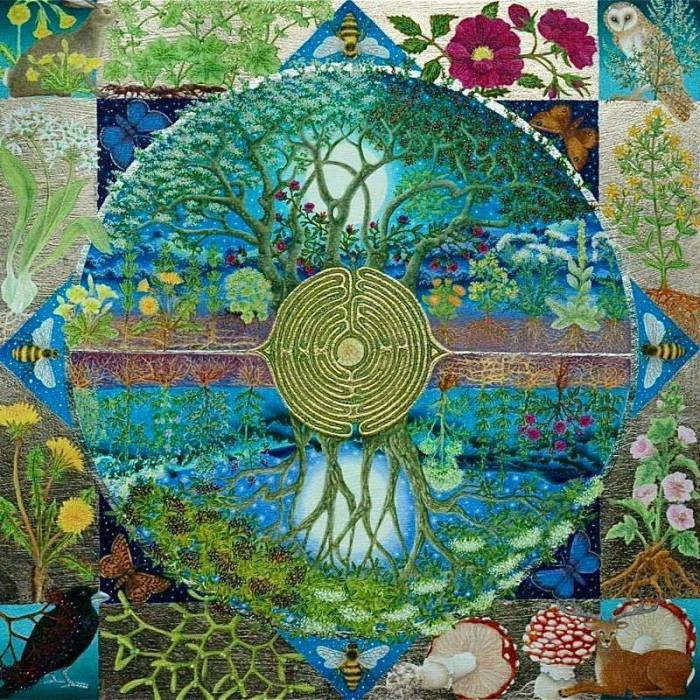
We must question reality itself, and the language through which we construct it, and realize that Western Civilization is not, as we have been led to believe, the Supreme Apex of human potential.
We have to be willing to conceive of the possibility that the Myth of Progress was never anything but a lie invented to justify plunder and exploitation.
This leads us to biocentrism, another core tenet of the New Anarchism. Simply put, biocentrism is the belief that the natural world does not exist in order to be exploited by human beings. Rather, human beings are seen as existing within a biotic community which includes not only all plants, animals, and fungi, but also rivers, mountains, and celestial bodies like the Sun, the Moon and the Stars.
Whereas the revolutionaries of the 20th century extended a spirit of brotherhood towards all humanity, the New Anarchists extend it further still. We pledge our allegiance neither to any nation, nor any creed, but to the Great Circle of Life itself, from which we each emerged, and to which we shall return.
Some have called this progress ethnogenesis. We must become a People. We must free ourselves from dependence upon the machine, for we will never get anywhere biting the hand that feeds us, but this is only the beginning.
It is not enough to reject the Dominant Culture, but to create a culture of our own. We must become a People, and in order to do so, we must plant our roots deep in the soil of ancient wisdom, because time is of the essence.
The world is in crisis, and with crisis comes opportunity. A window has opened up. There is nothing more powerful than an idea whose time has come.
And it seems that the time has now come for the New Anarchists to emerge from the shadows. It is a radical philosophy, of course, but perhaps its time has come.
What Paul has done is to actually put this philosophy down in writing, and to make it logically consistent.
Though what he writes is breath-takingly fresh and original, Paul insists that there is nothing new about this philosophy, and that in fact it can be found throughout history in every corner of the world.
And this is an area in which Paul shines, showing off his dazzling mastery of the philosophy of the world, referring as much to Eastern philosophies such as Taoism, Confucianism, and Hinduism as to the European intellectual tradition.
In doing so, he proves the existence of a philosophy which recurs time and time again in different parts of the world.

After reading The Withway, I am now more convinced of this than ever. Technologies change, ideas go in and out of fashion, but wisdom is wisdom and truth is truth.
If something is True, it is True forever. And for that reason, there is no need to reinvent the wheel when it comes to philosophy. All the answers to our questions are to be found in the traditions of the past. We need only to rediscover them.
As I have explained elsewhere, one of Paul’s core ideas is that of anarcho-perennialism, which is the idea that there is a certain natural philosophy which human beings will forever rediscover.
A society can fall out of balance, forsake its ancestral wisdom, and cease to value the Truth. But such deviation from the Tao can only last so long. The universe, like any other living body, is self-regulating.
If there is an imbalance, the imbalance will be corrected. And when that imbalance is corrected, the members of that society will learn to value Truth and Wisdom once again.
So, it is with pleasure that I present this series of interviews in which Paul and explore the philosophy which he lays out in his seminal new work.
In the meantime, I encourage everyone to check out The Withway, a free PDF of which is available here.
For the Wild, Crow Qu’appelle



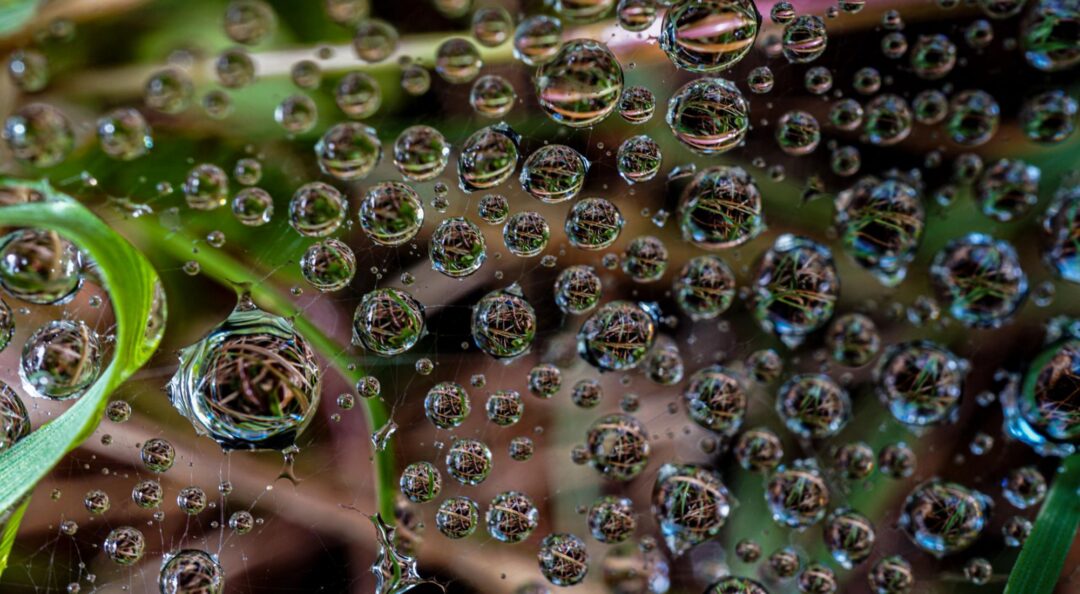

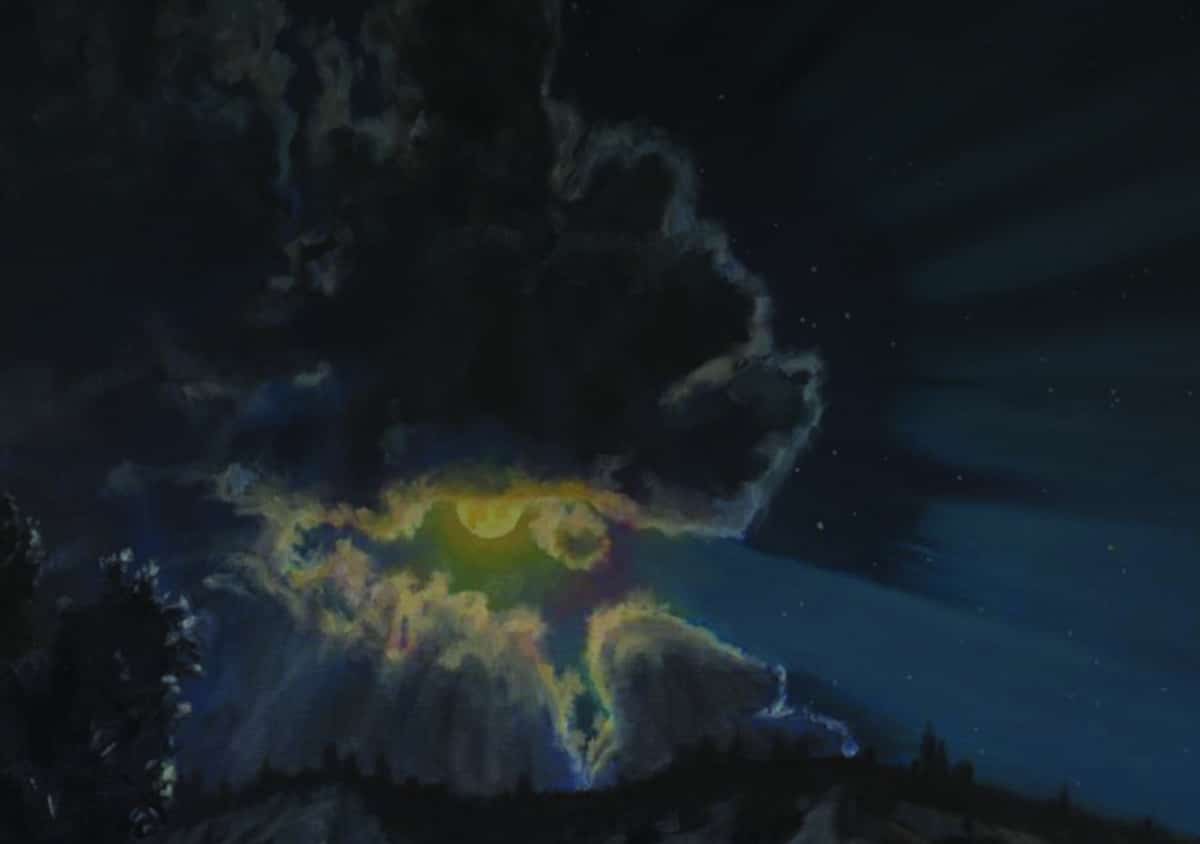

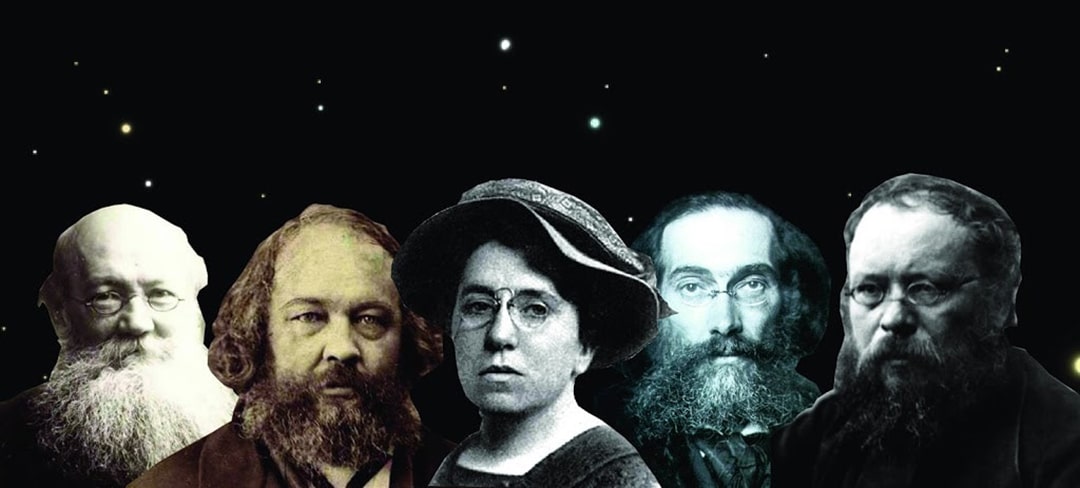
0 Comments